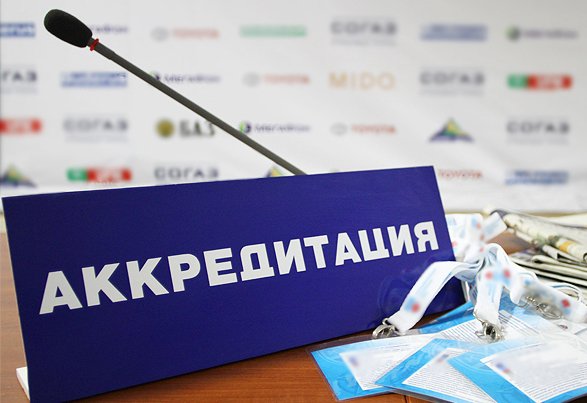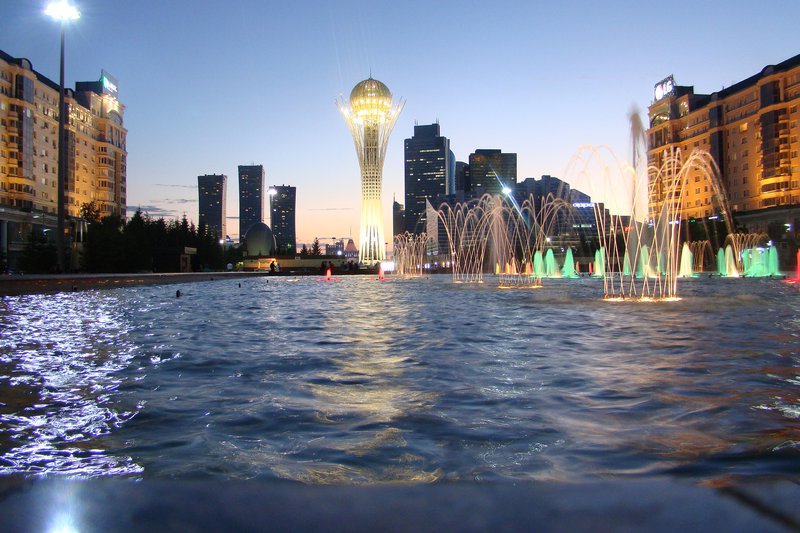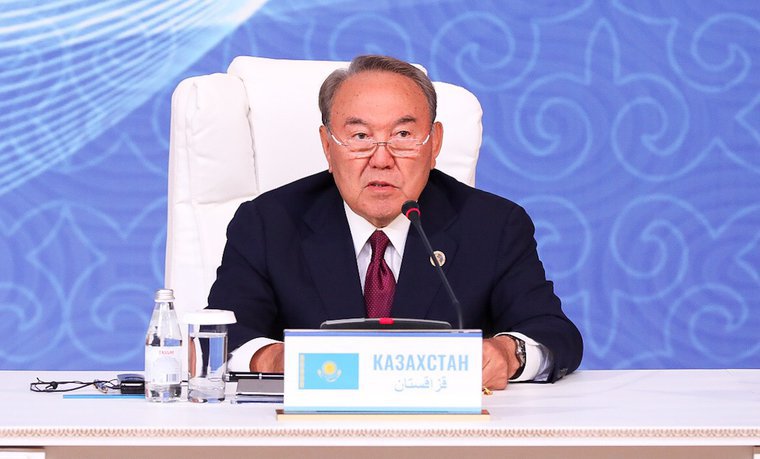
The Kazakh state is increasingly bringing the work of independent journalists under control. A new media law places further restrictions on journalistic freedom.
Censorship has been on the increase for a long time in Kazakhstan, but now it is reaching new heights. And it’s not only journalism that is being “regulated”, but business, legal practice, bailiffs and other areas.
As a rule, journalists are not usually openly pressured in Kazakhstan: they’re not imprisoned, threatened with reprisals or murdered. Journalists are usually pressured via their editorial offices and so-called “editorial policy”.
There’s also leverage via state advertising commissions: there are practically no publishing outlets in Kazakhstan that are independent of state commissions and funding. “He who pays the piper calls the tune,” as the saying goes.
New rules
The campaign against independent-minded media was won by Kazakhstan’s Ministry of Information in 2017, with the passing of a new Media Law.
This 25-page document limits journalistic activity and freedom of expression. There is now, for example, a ban on “disclosing information comprising state secrets”, a vague phrase that could mean anything or everything, including corruption and arbitrary rule on the part of Kazakh law enforcement.
"For media whose editorial policies don’t meet the criteria of the relevant state ministry, the line of attack involves accusations of spreading fake news and libel"
“It’s now the turn of the loyal, but not completely state-controlled media in Kazakhstan. For media whose editorial policies don’t meet the criteria of the relevant state ministry, the line of attack involves accusations of spreading fake news and libel. In this case, the media can be closed down by a court order. This is what happened to the online portal Ratel.kz, which worked on investigative journalist,” says Tatyana Kovalyova, who chairs the Board of Trustees of the Kazakhstan League of Court Reporters.
In May 2018, an Almaty district court imposed a one-year ban on this site and the use of the Ratel.kz domain. The prosecutor’s office pointed out that the domain’s owner, Gennady Benditsky, had died in December 2017, but its editors were continuing to post material without having changed the registered individual’s details. Ratel.kz’s server is also located outside Kazakhstan, in contravention of the country’s legislation. On top of that, the site was operating in both Russian and English, while its media licence only specified Russian.
Meanwhile, law enforcement opened a pre-trial investigation of Ratel.kz’s journalists and the deputy editor of business media Forbes Kazakhstan. This was initiated after a statement by former finance minister Zeinulla Kakimzhanov, who claimed that they had “spread highly false information (via the mass media).” The trigger for this investigation was an article on Forbes Kazakhstan, titled “A German Investor has been disillusioned with Kazakhstan thanks to Kakimzhanov”, which was published on the website in May 2017.
This article paraphrased a letter by German businessman Günter Papenburg, owner of international construction concern GP Papenburg AG. In the letter, Papenburg asked for an explanation as to why an investigation against Kakimzhanov, which was begun on his request in spring 2015, had closed. At the time, GP Papenburg AG had lodged a case against the K-Dorstroy Joint Stock Company, demanding that its purchase and sale investment contract should be declared null and void, as well as the repayment of €10m. According to Papenburg's letter, K-Dorstroy was supposedly owned by Kakimzhanov.
Video on the searches at Kazakh media. Source: "Za nami uzhe vyekhali"
According to Forbes Kazakhstan article, “Mr Papenburg, who is Kazakhstan’s Honorary Consul in Hanover, has spent two years attempting to ensure the repayment of his 10m euro investment through Kazakhstan’s courts. It appears that a man who should be attracting investment to Kazakhstan has himself been trying, unsuccessfully, to defend himself via Kazakh courts for several years.”
In March 2018, an English translation of the article appeared on the Balborsyk.kz site, a platform where Ratel.kz journalists had been publishing their articles after their own site was closed.
As a result, the offices of both Ratel.kz and Forbes Kazakhstan were searched, police questioned journalists, and Ratel.kz’s operations were temporarily shut down. Then in April 2018, a court ruled that both media had to pay Zeinulla Kakimzhanov and his son 50,200,000 tenge (about £104,000). The journalists appealed to the UN’s Human Rights Committee, which has accepted the appeal and is due to examine it.
Accreditation as a new method of control
In May 2016, Kazakhstan created a new Ministry of Information and Communication. At the time, it looked as if the country’s media had found itself an institution that could stand up for its interests inside the state structure. Three years later, we can conclude that 37 amendments have been made to Kazakhstan’s Media Law - and not one of them has done anything to improve the situation of journalists. On the contrary, the new accreditation rules may have tied the media’s hands forever.
In February this year, the Ministry of Information posted a draft order (“Establishing The Rule of Accrediting Journalists”) on its website, which immediately triggered a storm of protest. In the course of a week, several prominent NGOs – Internews, the Adil Soz media watchdog organisation, the Kazakhstan Union of Journalists and the Legal Media Centre – produced analyses of the new decree and a response to the ministry. At the same time, journalists in Almaty, Astana and Karaganda lodged a request to hold a protest rally against the new accreditation rules.
"Rules can also include requirements: not to use cameras or video; not to broadcast a live event online; not to ask questions without pre-arranged permission, not to use synonyms or change direct to indirect speech – or to publish nothing at all. All of this can be included in the rules which a journalist should sign up to beforehand"
The main change is that from now on, journalists seeking accreditation must provide not only their personal details and documents on their publication’s official registration, but also a letter testifying to their agreement “to comply with the internal regulations of the accrediting body and rules established by a moderator” at public events. Journalists also need to present copies of documents evidencing the contractual relationship between the publication and themselves.
The official response of Internews to the Ministry of Information reads as follows:
“It is unclear what ‘rules established by a moderator’ means. Rules are usually laid down before an event starts. How can journalists lend their agreement to something that will only be established and announced at a later date? Rules can also include requirements: not to use cameras or video; not to broadcast a live event online; not to ask questions without pre-arranged permission, not to use synonyms or change direct to indirect speech – or to publish nothing at all. All of this can be included in the rules which a journalist should sign up to beforehand.”
Journalists also proposed that the requirement for presenting contracts be dropped, as this contravenes Kazakhstan’s laws on protecting personal information.
Tamara Simakhina, a lawyer with Adil Sos, believes that the new accreditation rules will legalise the practice of refusing independent journalists’ access to information. Simakhina’s suggestion is to establish the obligations of media outlets, journalists and bloggers, rather than providing a basis for limiting media access to information.
The new accreditation rules also mean that journalists can be excluded from events if there is a lack of provision for them, whether it be tables and chairs or just space.
“This way only journalists loyal to the authorities will be able to enjoy accreditation privileges,” says Serikzhan Mauletbay, journalist and chair of Kazakhstan’s League of Court Reporters. “The press service of the official body in question will do its utmost to exclude journalists not under their control. In practice, this happens anyway, with or without accreditation rules.”
Kazakhstan’s media frequently bury stories unfavourable to its government
Kazakhstan’s media community suspects that even accredited members are excluded from certain events, with lack of space used as an excuse.
The proposed rules for withdrawing accreditation also don’t match up with Article 22 of the new Media Law: they include new points that are missing from the legislation. But from a legal point of view, subsidiary acts can’t be contrary to existing law. After two discussions and strong criticism from the media community, the Minister of Information and Social Development Dauren Abayev has promised to pass the new rules only after a consensus is reached and accounting for opinions of media representatives.
Avoid the main issue – by order
Kazakhstan’s media frequently bury stories unfavourable to its government. Take, for example the “land rallies” in April 2016 – these massive unsanctioned protests against amendments to the country’s Land Code that allowed foreign citizens to buy land in Kazakhstan. Back then, only a few papers wrote about what was happening.
The most recent example of media silence on a high profile issue was the decision to rename the country’s capital from Astana to Nur-Sultan, in honour of its former president Nursultan Nazarbayev, who relinquished his post in March after three decades in power.

MPs gave unanimous support to the initiative, the brainchild of Nazarbayev’s successor Kasym-Zhomart Tokayev. But ordinary Kazakh citizens were less united on their response. Social networks were in uproar, and an online petition against the change appeared online. Kazakhstanis started posting mocking videos and inventing memes. But the only people who could write about it all worked for the Vlast (“Power”) online journal and foreign publications accredited in Kazakhstan, such as Radio Liberty and Sputnik. Everyone else confined themselves to celebratory odes from state employees, MPs and other officials praising the initiative.
On 21 and 22 March, after MPs approved the renaming, a few small and isolated protests against the renaming took place in Almaty, Astana and Uralsk. They were dispersed by the authorities and their participants arrested - unsanctioned rallies are after all illegal - and “invited” students obstructed journalists in their coverage of the event by blocking access to their cameras and freedom of movement. But not a single state-owned or other media body mentioned any of this – again, the public could only hear about it from Vlast, Interfax, Radio Liberty and Ural Week.
On 26 March, Kazakhstan’s Interior Minister Erlan Turgumbayev also announced that no one had been arrested for opposing the renaming of the capital. According to him, the arrests were for breaches of public order.
The Media Law “just gets in the way”
Kazakhstan’s Minister of Information Dauren Abayev nevertheless believes that freedom of speech is well protected in Kazakhstan. “We do have freedom of speech here,” he stated, commenting on the many amendments made to the Media Law at the end of 2017. “If you don’t insist that this freedom should be absolute, I think we’re talking about a rating of around eight out of ten.”

At that point, 250 amendments were made to various codices and 12 laws. “There are things that get in the way of journalists’ work – why not remove them? And we are busy removing them,” Abayev said as he presented his new legislation. “After that, we’ll approach the issue more conceptually. All the amendments are already in the Codex; some of them have been there for 20 years. And now we’re making things easier for the media by consolidating all the changes in one document, so that the whole media sphere is aware of them. Everything is already there in one law or another.”
According to the minister, what was still missing was the concept of “propaganda”, which was added to the Media Law - and seen by experts as potentially dangerous. Another was the lack of a requirement for agreement when disseminating legal secrets and for the obligatory identification of users posting information on the internet. So, since the Media Law was passed, journalists in Kazakhstan who have uncovered compromising facts about senior officials have had to ask for their permission to publish it and warn the public about it. Otherwise, reporters could be faced with court cases that they will inevitably lose.
“Any official can file a court case if they believe that there is a family secret contained in case documents,” journalist Asel Djanabayeva told the internet portal Informburo.kz. “But the concept of ‘family secret’ is not part of marriage and family law. If I am involved in an investigation and want to report on how much a minister is worth, I can’t write about his wife because he might believe that I am thereby uncovering a family secret. The new law doesn’t say that he has to prove this. He can turn to the courts. Meanwhile, the article is automatically removed, plus a fine and moral damages.”
Olga Didenko, a media lawyer with the international Internews Network, points out the vagueness of a number of points. According to Didenko, when it comes to the wording on “propaganda” in the law, a significant part of the assessment is given over to how “total” a piece of information is presented. It’s not, however, clear who will make an assessment of the positive, neutral or negative mood, and how they will do it.
One key change to Kazakhstan's Media Law is a requirement for obligatory user identification when anonymous posts are published on the internet
“The term ‘incitement to unlawful activity’ has no concrete parametres either,” says Didenko. “We are facing a situation where we are trying to define something using a list of undefined terms and concepts.”
For journalists, the difficulty of the new requirement to acquire an individual’s agreement before publishing legal secrets is that current legislation in Kazakhstan contains more than 10 such secrets that are “scattered” around various legislation.
Policing discussion
One key change to Kazakhstan's Media Law is a requirement for obligatory user identification when anonymous posts are published on the internet. Anyone wishing to express their opinion online must sign a user agreement and go through initialisation via either an electronic digital signature or a one-off SMS password. The owners of these resources must then store users’ data for the entire life of the agreement and for three months after it ends.
Back in 2017-2018, as the new law was being discussed, journalists couldn’t have imagined that the Ministry of Information and Communication could create and pass a law that would limit freedom to such an extent. So they just let it be passed. Now media workers, schooled by bitter experience, have begun to stand up for their rights with the energy for which their profession is well known. This activity, revealed in the process of discussing the new accreditation rules, has left not just government officials but hardened editors used to describing the new generation as “more dead than alive” open-mouthed.
This gives us some hope that their proposals will be heard and adopted by the Ministry. Otherwise, the only people able to write in Kazakhstan will be the old hands loyal to the political regime and the pro-government press.
Original source: Open Democracy




